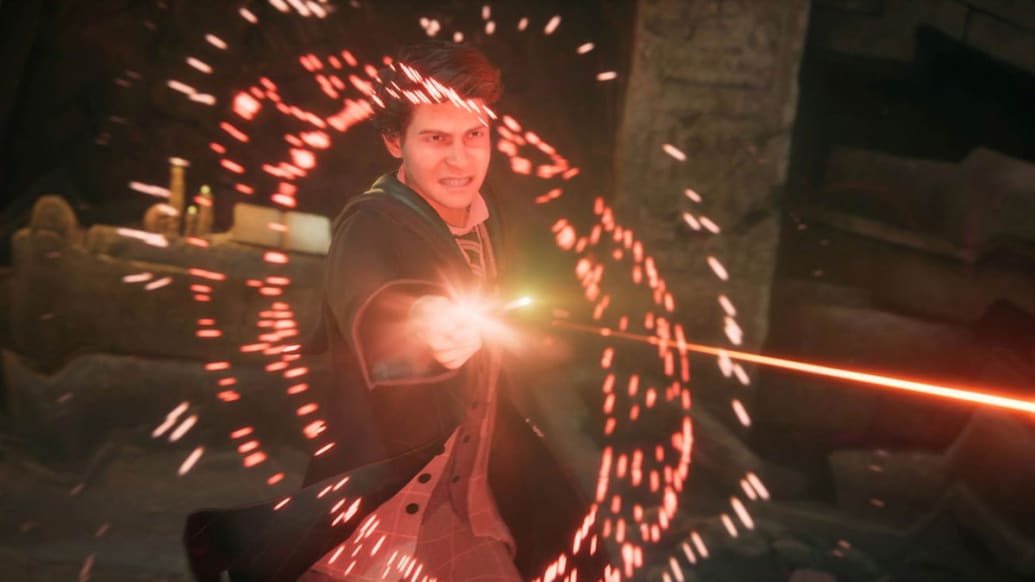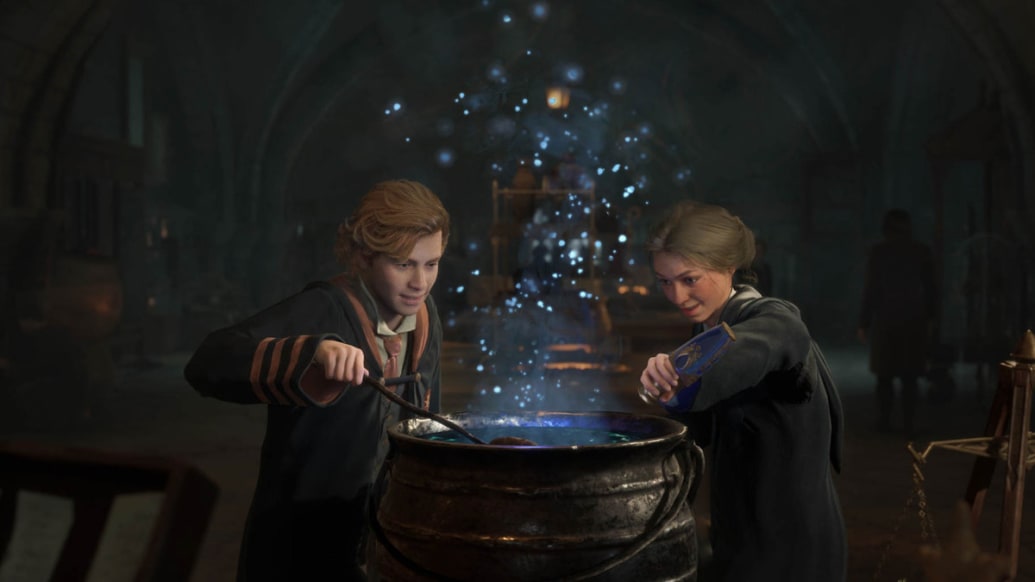In August 2022, at the German video game industry conference Gamescom, the yet-to-be-released action role-playing game Hogwarts Legacy won its first accolade: “ and Hogwarts Legacy—to separate the art from the artist, so to speak—by suggesting that Rowling’s personal beliefs as a writer can be regarded as removed and distinct from her works.
Props to Miku, obviously, but there’s a problem with this approach of justifying one’s interest in a product without supporting its maker. One of the biggest issues is that “Death of the Author” applies a form of literary criticism on a series that has gone far beyond its literary roots: Harry Potter is now a sprawling multimedia franchise, spanning across nearly a dozen films, a Broadway play, myriad video games, and more. The theory of analyzing written works on their own merits originates from a 1967 essay written by critic Roland Barthes—way, way before the era of Twitter outbursts and online transphobic meltdowns.
Barthes, quoting a line from French novelist Honore de Balzac on femininity, insisted that there’s no way to tell if an author (in this case, Balzac) was professing his own opinion through the protagonist he had written—and it is wrong to assume he was. “Writing is the neutral, composite, oblique space where our subject slips away, the negative where all identity is lost, starting with the very identity of the body writing,” Barthes explained. In short, language is the void where authorial intent and identity cease to exist, with meaning created only by the reader when these words are seen, rather than the author.
To use this theoretical principle as rationale for still engaging with the Harry Potter series, fans need to shut out not just Rowling’s political leanings and any Rowling-related ramblings—admittedly difficult when she has a massive following of 14 million on Twitter alone, and can easily inspire headlines with an errant tweet.
They also need to overlook her infamous Potter retcons. Remember when she retroactively pointed out that beloved schoolmaster Dumbledore was actually in love with a man, despite no such evidence existing in the novels? Or how she explained the way wizards would relieve themselves in the olden days, simply by taking a giant dump right on their robes—and magick-ing the stains away after? What about when she responded to an inquiring reader that the minor character Anthony Goldstein was Jewish, despite never identifying him as such in the books?

Avalanche Software
But Rowling makes this harder to do because of her continued public attachment to her creation. She still engages with the Harry Potter franchise, by publishing occasional articles via Wizarding World Digital and writing the screenplays for the ongoing Fantastic Beasts and Where to Find Them films. Beyond her writing, her influence is imprinted upon every aspect of Harry Potter media, which remain so successful. It’s why Portkey Games, for instance, is a video games label dedicated to the creation of more games set in the wizarding world—even 25-plus years later, there are seemingly more stories to tell in Rowling’s universe. The author’s influence is inescapable, and this is only fuelled by the sheer prevalence of the Harry Potter series in pop culture.
In the end, whether or not Rowling can be extricated from Harry Potter can feel like a largely academic argument, which is perhaps ill-suited for such a topic. After all, “Death of the Author” was ultimately written by a white, French critic far too immersed in abstract literary theories and Western popular culture. And divorcing Rowling’s bigotry from the wizarding world is hugely tempting, especially since it can be extremely painful to reject something this foundational to our own memories as a fan. Like its boy hero, Harry Potter has helped many people live through their own tumultuous childhoods.
But it still can’t be overstated how the Potter universe is fundamentally a reflection of Rowling’s values, even if Hogwarts Legacy is taking place in a pre-Harry Potter era. Take the series’ unsavory depiction of goblins, which is remarkably similar to anti-Semitic Jewish caricatures, for example; the goblins also play a large, complicated role in Legacy. There’s also her oddly implicit endorsement of elf slavery (the movies have, deliberately or not, eliminated any mention of their eternal servitude and Rowling’s mockery of Hermione’s anti-slavery activism). And there’s Nymphadora Tonks, an androgynous, short-haired witch, who rejected her given name as “Dora” and was disappointingly revealed to be canonically straight at the end of the final novel—a character many non-binary and transgender fans look up to as Rowling’s only seemingly queer heroine.
“It’s testament to how the wizarding world—and Hogwarts Legacy—is rooted in Rowling’s beliefs and ideas. ”
Most of all, there’s the main series’ neoliberal slant, in which the greatest evils known to wizards are vanquished without the need to enact any sort of lasting, systemic change within its universe, as encapsulated in this popular meme. While these specifics are probably not going to be explicitly addressed in the game, it’s testament to how the wizarding world—and Hogwarts Legacy—is rooted in Rowling’s beliefs and ideas. It’s, after all, something that even the developers of Hogwarts Legacy have freely admitted themselves when they called Rowling a crucial part of the franchise’s “foundation.”
Perhaps this can be encapsulated by my own disbelief on Hogwarts Legacy’s inclusion of transgender characters. Hogwarts Legacy offers players the option to create their own transgender avatars, according to reports and players with early copies. At the same time, players will also get to meet a transgender character, Sirona Ryan, when they enter Hogsmeade Village; she’ll introduce herself as someone who wants to be seen as “a witch, not a wizard” by her own classmates. Yet it’s difficult to see her inclusion as anything else other than a salve against Rowling’s venomous transphobia, or to placate LGBTQ+ fans of Harry Potter still on the fence about consuming more Potter media.

Avalanche Software
What’s more, neither Avalanche software nor its publisher, Warner Bros. Games, has a history of championing diversity or marginalized voices; in fact, a member of the Avalanche team ended up resigning before the game’s release, after a journalist dug up his inflammatory views and support of minority-targeting harassment campaigns. And there’s much more financial incentive for Warner Bros Games’ Portkey Games to keep publishing new Potter games, as long as there’s enough demand for them.
For this Harry Potter fan, at least, the choice is easy. There can be no “Death of the Author” applied here—as Rowling embarks on yet another transphobic tirade online, I can’t, in good faith, consider the joys of zipping around on a magical broomstick in Hogwarts Legacy.

